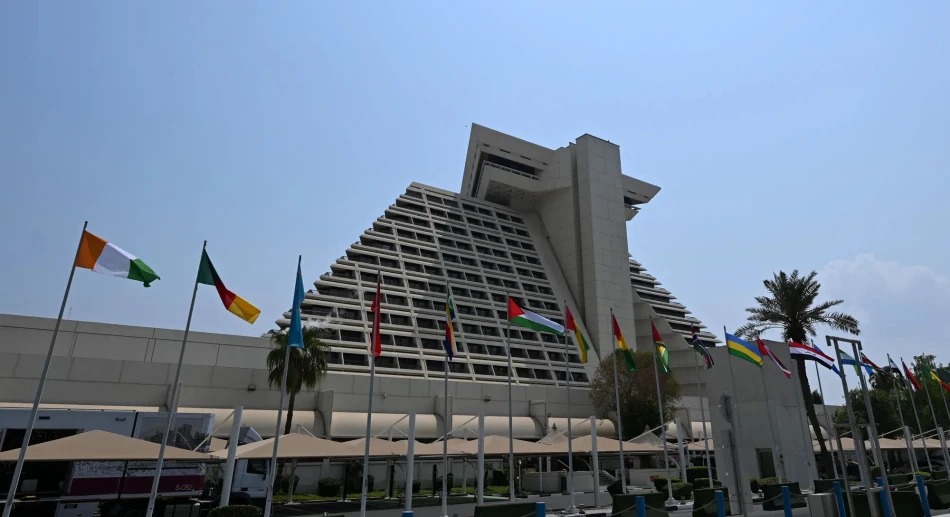
Urgent Arab-Islamic Summit: Qatar's Security is an Integral Part of Arab and Islamic National Security
Arab-Islamic Summit Convenes as Regional Powers Draw Red Lines After Israeli Strike on Qatar
Senior diplomats from Arab and Islamic nations gathered in Doha on Sunday for an emergency summit responding to Israel's unprecedented attack on Hamas leaders in Qatar's capital last week. The strike, which killed five Hamas members and one Qatari security officer, has galvanized regional powers to reassert sovereignty principles and challenge what they view as Israel's expanding operational impunity across the Middle East.
Regional Solidarity Emerges Against Sovereignty Violations
Foreign ministers attending the preparatory meeting declared Qatar's security "an integral part of Arab and Islamic national security," signaling a coordinated response that transcends traditional diplomatic protests. The gathering represents more than symbolic solidarity—it reflects growing concern among Gulf states that Israeli operations could expand beyond Palestinian territories into their own sovereign space.
Iranian President Masoud Pezeshkian, Iraqi Prime Minister Mohammed Shia al-Sudani, and Turkish President Recep Tayyip Erdogan are among the high-profile leaders attending, demonstrating the strike's ability to unite often-fractured regional powers around sovereignty principles.
Beyond Diplomatic Theater: Strategic Implications
The summit's timing and composition suggest this is more than routine diplomatic condemnation. Qatar serves as a crucial mediator in the Gaza conflict alongside the United States and Egypt—a role that requires maintaining relationships with all parties, including Hamas leadership. Israel's decision to strike Hamas figures in Doha directly challenges this mediation framework.
Andreas Krieg from King's College London noted that the raids are "considered throughout the Gulf as an unprecedented violation of sovereignty and an assault on diplomacy itself." His analysis suggests the summit aims to "draw clear red lines and end the impression that Israel can act with impunity."
Diplomatic Calculus in a Multipolar Middle East
The Israeli strike places traditional U.S. Gulf allies in an uncomfortable position. These nations maintain security partnerships with Washington while increasingly asserting independent foreign policy positions. Qatar's hosting of both U.S. military assets and Hamas leadership exemplifies this balancing act—one that Israel's operation has complicated.
The broad international condemnation, particularly from Gulf states that maintain normalized or working relationships with Israel, indicates the strike crossed established diplomatic boundaries. Unlike previous Israeli operations in Syria or Lebanon, targeting figures in Qatar—a major U.S. ally and regional diplomatic hub—represents a qualitative escalation.
Implications for Regional Mediation Efforts
Qatar's mediation role in the Gaza conflict depends on its ability to host and communicate with all parties. By targeting Hamas leaders in Doha, Israel may have undermined one of the few remaining diplomatic channels for conflict resolution. This could push regional powers toward more confrontational positions, as traditional mediation mechanisms lose effectiveness.
The summit's expected "firmer stance toward Palestine and stricter approach to Israel's practices" suggests a potential shift in regional diplomatic strategies. Rather than quiet mediation, Arab and Islamic nations may pursue more public pressure campaigns and coordinated diplomatic responses.
Testing the Limits of Strategic Patience
The emergency summit represents a test of whether regional powers will move beyond traditional diplomatic responses to more concrete actions. While economic sanctions or military responses remain unlikely, the gathering could produce new frameworks for diplomatic isolation or coordinated international legal challenges.
For Israel, the operation achieved tactical objectives—eliminating Hamas leadership—but may have strategic costs if it reduces regional diplomatic flexibility and hardens positions among potential mediating nations. The summit's outcomes will indicate whether Israel's expanding operational reach has crossed red lines that trigger sustained regional opposition.
Most Viewed News

 Sara Khaled
Sara Khaled






